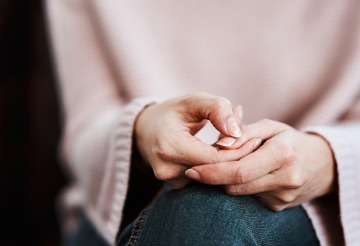


Nurofen Plus is a non-prescription painkiller containing codeine and ibuprofen. People can become physically and psychologically dependent on this over-the-counter medication as a result of the opiate drug - codeine - which is included in the tablets.
If you're concerned about yourself or worried that someone you know may have a Nurofen Plus addiction, we have highlighted the signs and symptoms that could point to a drug problem. We have also outlined the recommended support and treatment that's available at Priory’s private UK rehab clinics for someone struggling with such an addiction.
Signs and symptoms of Nurofen Plus addiction
When someone is dealing with a Nurofen Plus addiction, they're likely to experience the following:
- Finding they need to take higher doses of Nurofen Plus in order to achieve the desired effects, or ward off withdrawal symptoms
- Suffering from withdrawal symptoms if they miss a dose, or if they attempt to cut down or stop taking Nurofen Plus
- Continuing to take Nurofen Plus despite the negative effects it's having on their health, finances, relationships and wellbeing
- Taking Nurofen Plus after the original source of the pain has stopped, or if there wasn’t pain to begin with
- Visiting different shops and chemists to acquire Nurofen Plus, buying tablets online, or stealing drugs from stores or other people
- Spending a lot of time acquiring and taking Nurofen Plus
- Hiding Nurofen Plus packets and concealing their use from others
- Becoming more isolated and withdrawn
A person with a Nurofen Plus addiction is also at risk of misusing other drugs containing codeine in an attempt to ward off withdrawal symptoms. They may visit different chemists to obtain several non-prescription drugs containing codeine.
The dangerous effects of a Nurofen Plus addiction
When someone has a Nurofen Plus addiction, they'll likely take large quantities of the drug in order to prevent withdrawal.
Taking Nurofen Plus in such high amounts can have a damaging effect on a person’s health. For example, it can leave them exposed to toxic doses of ibuprofen, which can lead to irreversible and sometimes fatal liver damage, stomach issues such as ulcers and bleeding, as well as an increased risk of heart attacks.
The overuse of Nurofen Plus also comes with the risk of overdose. Overdoses can lead to respiratory failure, and can be fatal.
Nurofen Plus withdrawal
When withdrawing from Nurofen Plus, common early withdrawal symptoms include:
- Irritability and anxiety
- Trouble sleeping
- Fatigue
- Runny eyes and nose
- Sweating
- Aching muscles
- Increased heartbeat
Later on in the withdrawal process, a person may experience the following:
- Nausea, stomach cramps and vomiting
- Diarrhoea
- Loss of appetite
- Enlarged pupils
- Chills or goose bumps
It's recommended that withdrawing from Nurofen Plus takes place in a medically managed environment. By having a specialist team oversee the process, this ensures that the detoxification is carried out in a safe and controlled way, where symptoms are monitored and mitigated.
At Priory, our medically-assisted detoxification programme provides people with 24-hour care and support in a safe and secure environment, complete with private rooms. With round-the-clock care from our expert detox teams, a person can rid their body of addictive substances as comfortably as possible.
Overcoming your Nurofen Plus addiction
We understand that the idea of moving away from a Nurofen Plus addiction can be scary. Despite the devastating impact the drug can have, a person may feel as though they wouldn’t be able to function without it, and they need the tablets to manage day-to-day.
At Priory rehab clinics, we can provide people with the support they need to move past their addiction, so they're able to regain motivation and drive in the areas of their life that have been left behind or ignored.
Following on from a medically managed detoxification, we recommend that a person undertakes an addiction treatment programme at Priory. This residential stay gives a person the opportunity to focus entirely on addressing their addiction, away from the distractions of the outside world. Through workshops, group therapy and personal reflective sessions, a person can address the underlying causes and triggers for their addictive behaviours, and learn strategies for a long-lasting recovery.
We're committed to helping people maintain abstinence, which is why we provide comprehensive relapse plans and personalised aftercare to everyone who goes through our programme. We also offer day care and outpatient support, as well as a free 12-month aftercare service to people who undergo our addiction treatment programme, to help them as they start to rebuild their relationships and responsibilities.
Subscribe to our newsletter
Get free monthly tips, tools and expert videos to support your mental health.
That's all in The Reset, helping you support your wellbeing - directly to your inbox each month.



